One highlight of remote learning is that I am much closer to the content my children are being taught. Last week, I was pleasantly surprised with my oldest daughter’s opinion essay summarizing her research about her choice for president. When she was a toddler my husband and I would joke that she was likely going to be an attorney because she always had a very intentional case argument about why we needed to buy her things or take her places. My heart exploded while I listened to her justify her decision for endorsing a candidate based on the intersection of racial justice, criminal reform, and her own values.

In my fourth grade year I don’t think I could have made that type of warranted argument in social studies class. I am thankful that my children are learning about our civic life, research and evaluation, and communicating their ideas to the public. My husband and I spend a lot of time at our dinner table discussing the tradeoffs of decisions, which, today, are harder than ever to make. Some nights, it is about whether or not to have another glass of wine or piece of chocolate cake (usually yes) and others it is about a new bond measure, which we don’t always agree on. Either way, as a parent, our children are listening and I hope they continue to practice the skills of discussion and negotiation in their communities.
Civic responsibility is central to the recovery of our health, economic, and social justice systems. Our students and youth will play a central role in the post-COVID rebuilding efforts and we must prepare them immediately.
POLITICS
I don’t know how it happened, but October is gone and the election is only one week away. This is leaving many education leaders and policymakers questioning the impact of election outcomes on their communities. At the federal level we can focus on the substantive changes to our national education agenda if Senator Patty Murray (WA-D) takes over for Senator Alexander. In addition, following the politics and partisanship of labor unions is a critical feature of understanding how the election may impact education. This past week The74 reported that “NEA raised almost $23 million, almost all of which it passed on to its own super PAC,” while another working paper released explained that “partisanship — as exhibited by the share of voters in a given county who supported Donald Trump in 2016, as well as the strength of local teachers’ unions — drove reopening plans ‘far more’ than public health conditions.”
“I don’t know how it happened, but October is gone and the election is only one week away. This is leaving many education leaders and policymakers questioning the impact of election outcomes on their communities.”
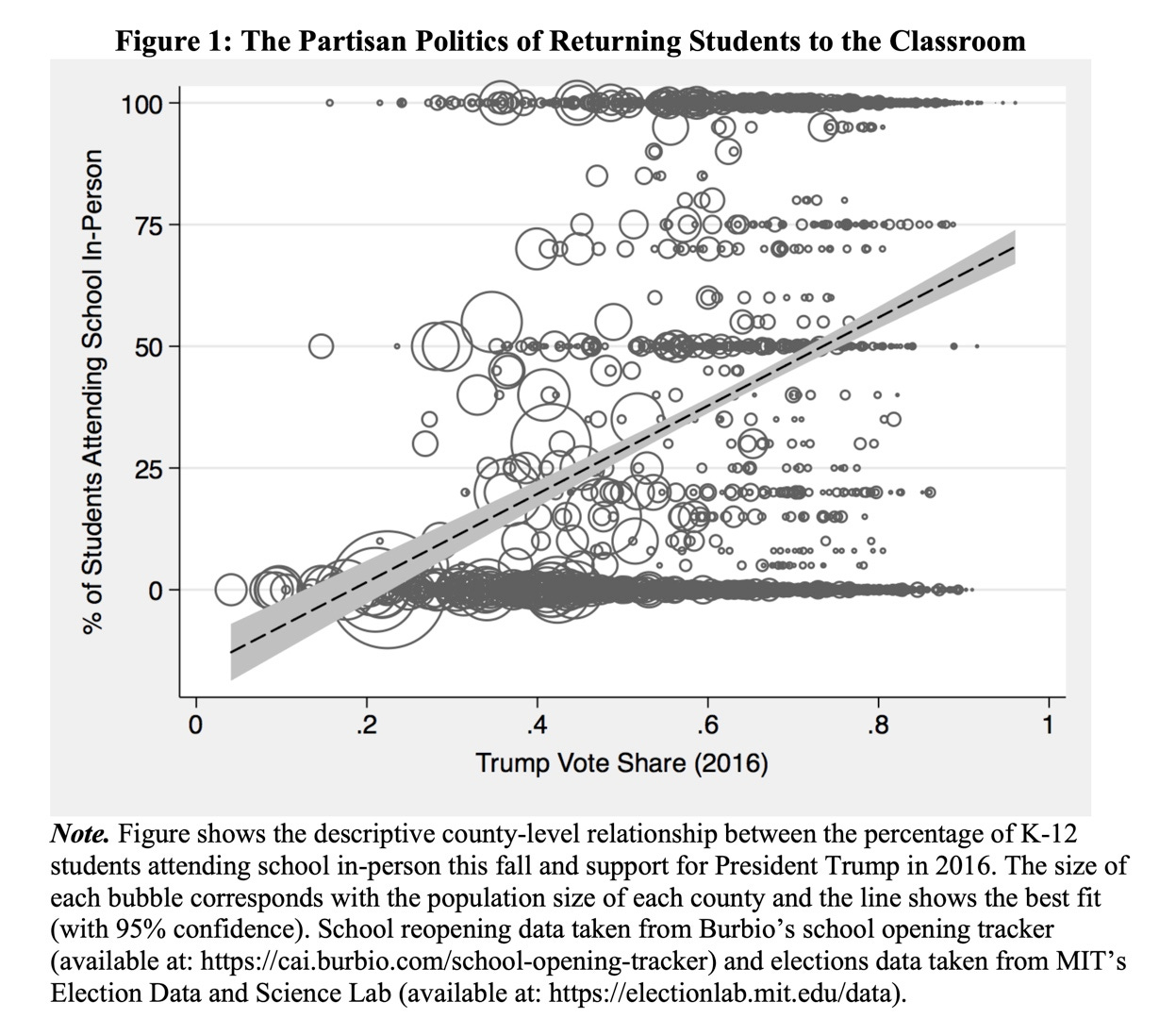
STATE AND FEDERAL FUNDING AND POLICY
Last week Pelosi, Mnuchin, and the White House inched toward additional federal relief, but with about one week until election day and little support from McConnell the chances of Senate Republicans backing another package is nearly out of sight. Aside from a seemingly endless waiting game in Washington, state and local leaders are still under pressure to prepare for additional budget cuts this year. This means our communities are having another round of difficult conversations about the tradeoffs of fiscal decision making while COVID-19 cases aren’t improving in many areas.
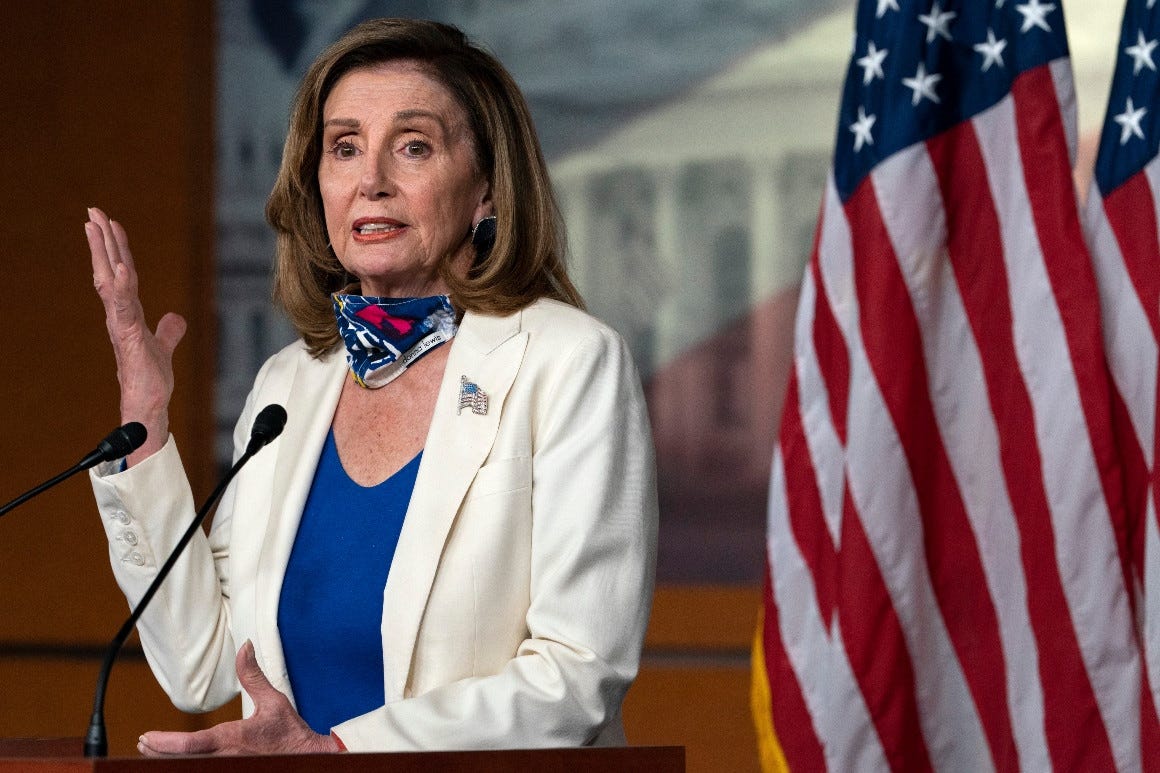
How the pandemic is changing Colorado education policy (Chalkbeat)
Pelosi and Mnuchin brush past stimulus deadline amid hopes for a deal (Politico)
Pandemic relief talks inch ahead, but McConnell is resistant (AP)
ACCOUNTABILITY
The pandemic and longstanding impact of systemic racism across society has shed light on the tensions between federal, state, and local governance over education systems and USED is at the center of this uncertainty. On the one hand, USED is holding tight to accountability provisions for this year, releasing their guidance and template that urges states to work directly with them on context-specific waivers for the 2020-2021 school year. On the other, Devos explained that it is not their responsibility to track COVID-19 cases in schools, but rather the CDC should be in charge of that effort. Still, there is little guidance from our federal and national education policy leaders on the ways state and local educators should address pragmatic challenges like absenteeism,, reopening schools based on positive COVID test rates, and how to best collaborate with backbone organizations to centralize capital and efforts.
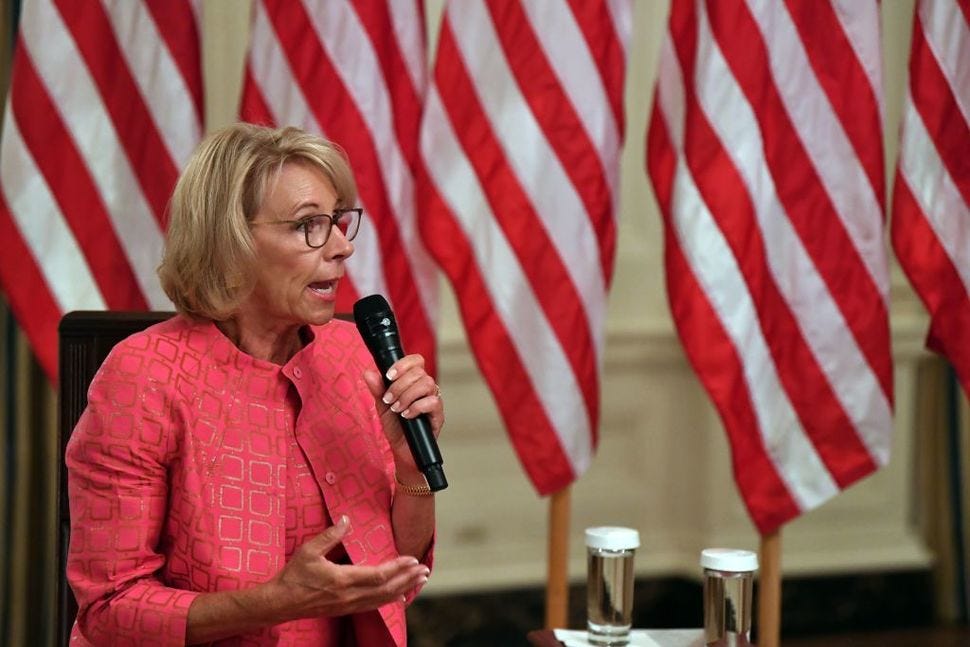
Local leaders aim to be ‘catalyst for change’ with Reimagine Oregon (KOIN)
State education board meeting to address district exemptions, teacher evaluations (WY)
Amid COVID pandemic, New Jersey names new state education commissioner (ABC)
SUPPORTING EDUCATORS
In the context of budget cuts, political upheaval, and remote learning, teachers are rightfully experiencing decreased sense of self-efficacy and direction. However, some educators are better off because they “had an infrastructure that allowed them to successfully work together and come up with how to do [remote or hybrid learning], rather than having teachers on their own islands, floundering, without much sense of community.” This is an opportunity for us to come together and explore, understand, and improve the teaching profession — the pandemic is defining a new purpose for educators.
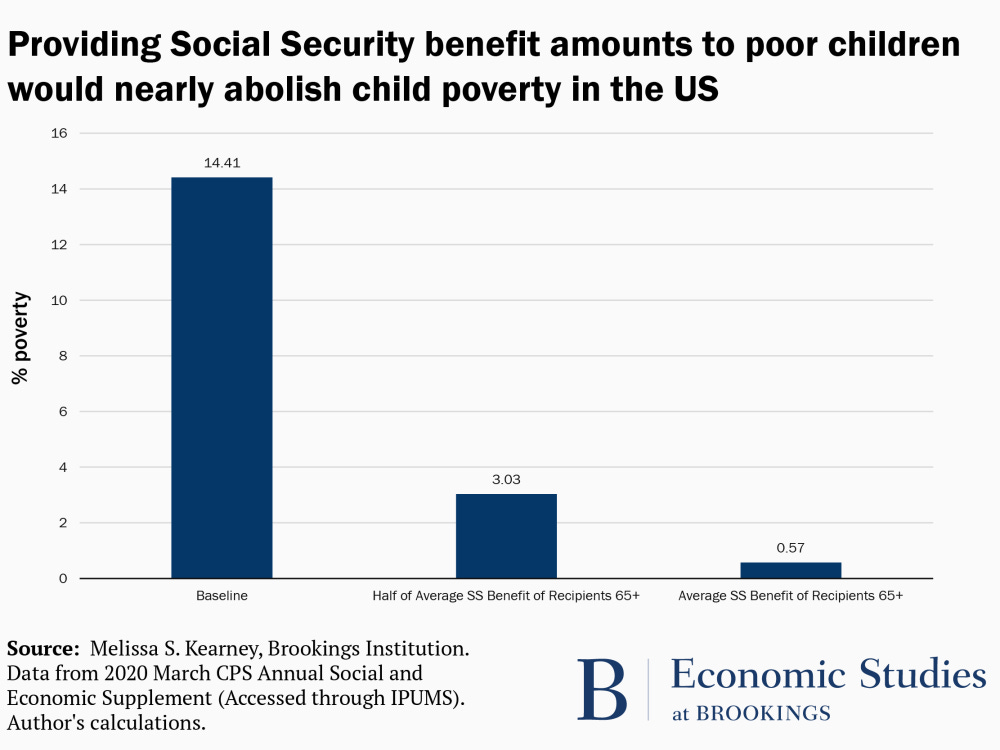
Older workers face higher unemployment amid virus pandemic (AP)
Survey: More than Half of Teachers Felt Less Successful After COVID-19 (The74)
We could abolish child poverty in the U.S. with Social Security benefits for poor kids (Brookings)
Hillsborough School Board meets as teachers scramble for new jobs (FL)
FOCUS ON SEL
Schools are, rightfully, focusing heavily on the social, emotional, and mental well-being of students and families. As such, districts are exploring how to leverage community organizations to reach and support our families and students, build safety nets around our communities, and create long-term strategic plans for recovery and renewal out of this pandemic.
“districts are exploring how to leverage community organizations to reach and support our families and students, build safety nets around our communities, and create long-term strategic plans for recovery and renewal out of this pandemic.”
Clackamas County voters weigh property tax to help abused, neglected children (Oregonian)
Report: SEL programs benefit from partnerships, adults' skills (RAND)
TEACHING AND LEARNING
Schools are making a variety of adaptations to maintain education and other services for students and families throughout the global health and economic crises. Last week education thought leaders partners and shared how these strategic programs may inform potential pathways for future reform and innovations in the long term.
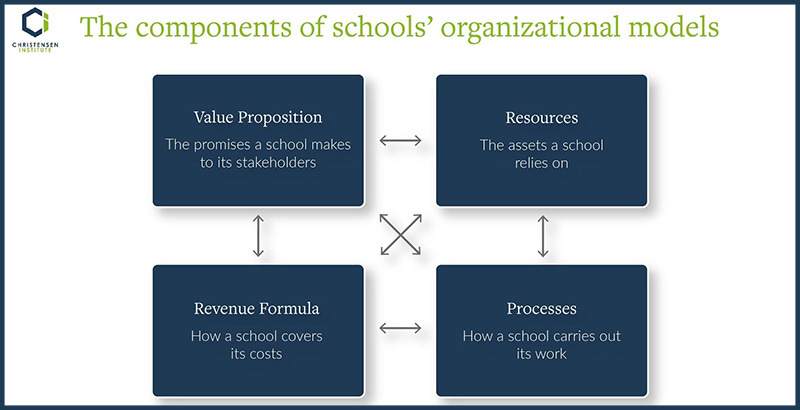
EARLY LEARNING SYSTEMS
State and local education leaders have an opportunity to create more cohesive systems across early learning settings by focusing on transitions and alignment in instruction, curriculum, and governance. Some states have historically created cross-sector investments and strategic planning to invest in statewide improvement efforts - like the science of reading in Tennessee. The pandemic has elevated the existing need for affordable, quality early learning programs to support our workforce and youth development. In addition, there is a renewed concern about bridging our budget, policy, and governance efforts for early childhood education.
“The pandemic has elevated the existing need for affordable, quality early learning programs to support our workforce and youth development. In addition, there is a renewed concern about bridging our budget, policy, and governance efforts for early childhood education.”
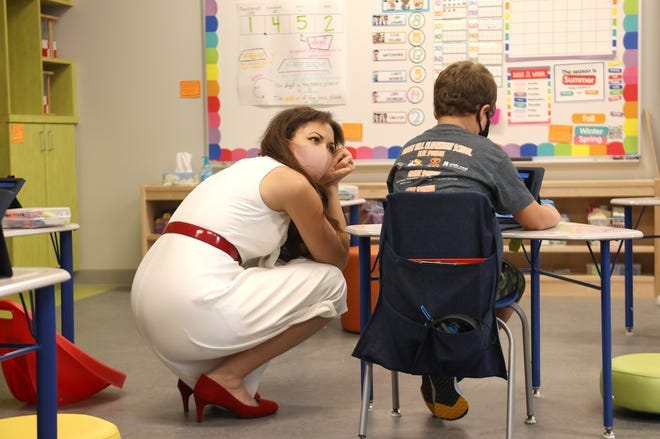
Closer to Home: More Equitable Pre-K Access and Enrollment in Chicago
COVID-19 Transmission in US Child Care Programs (Pediatrics)
State Policies to Enhance Transitions Into Kindergarten (ECS)
—
UPCOMING EVENTS
Tuesday, October 27 (4:00 -5:15 PM EST) NCEE and the Organisation for Economic Co-operation and Development (OECD) webinar called “Are Students Prepared For An Interconnected World?: Examining Global Competency in the 21st Century”.
Tuesday, October 27 (4:00 -5:00 PM EST) The American Enterprise Institute webinar titled “First 200 Days: How Technology Can Make or Break the President’s Agenda”.
Thursday, October 29 (10:00-11:30 AM EST) The American Enterprise Institute webinar on “Why Children Can’t Read and What We Can Do About It”
Thursday, October 29 (2:00-3:00 AM EST) The Thomas Fordham Institute webinar “Will More Social Studies Instruction Improve Students’ Reading Outcomes?”
Dr. Christine M. T. Pitts serves as Manager of Research and Evaluation at Portland Public Schools. As an Oregonian, raised by a multicultural family of educators, she brings a decade of progressive strategic leadership experience, a transformative vision, and analytic skill to crafting state education policy. An educator and researcher by training, she has conducted legislation, governance, and policy analyses on a wide array of education issues using social network analysis and mixed methods research. In addition, Dr. Pitts is a facilitative leader who deeply understands and co-constructs local and national partnerships and convening across stakeholder groups. Dr. Pitts currently coordinates between state and national policy leaders to investigate and advocate for policies that prioritize equity in education. Christine lives with her husband and four children in Portland, Oregon. Follow her on Twitter @cmtpitts.




